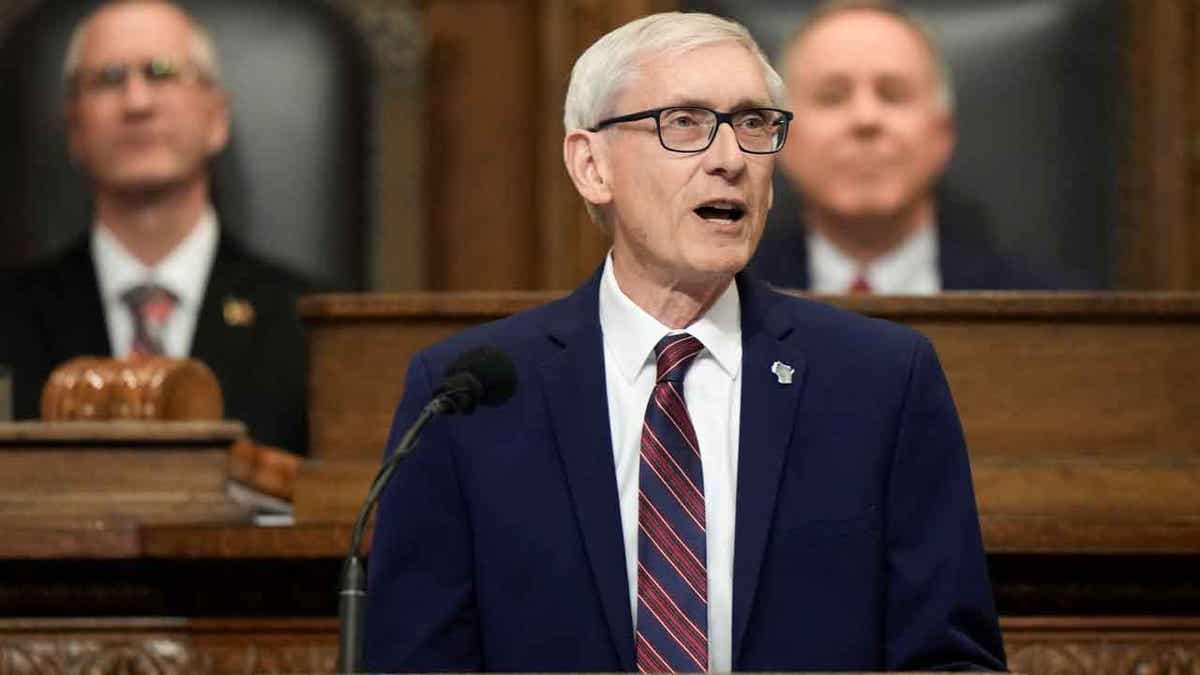Fox News Flash top headlines for May 4
Fox News Flash top headlines are here. Check out what's clicking on Foxnews.com.
Democratic Gov. Tony Evers promised Thursday to veto a wide-ranging Republican plan to bolster aid to local governments, saying the measure moving rapidly through the GOP-controlled Legislature doesn't give enough unrestricted money to communities struggling to pay for police, fire and other services.
Republican authors of the bill said at a hearing Thursday they remained open to making changes, with Sen. Mary Felzkowski downplaying Evers’ veto threat as "part of the sausage making."
They will have to act fast. Republicans want to pass the bill in mid-May.
Evers made his opposition to the measure clear minutes before a public hearing that brought together leaders from Milwaukee and other communities across the state. They have been lobbying for years for more state support to pay for police and fire protection and other services. Thursday’s hearing came less than 48 hours after the bill, backed exclusively by Republicans, was introduced.
Evers said the current proposal comes with too many restrictions. Those include a ban on public health officials from ordering businesses closed for more than two weeks and cutting aid to communities that reduce the number of police officers and firefighters.
The $1.5 billion in aid to counties, cities, towns and villages would be paid for by tapping 20% of the state’s 5-cent sales tax, an idea Evers has supported.
Under the bill, local governments would see at least a 10% increase in funding, amounting to $227 million. That new money could only be spent on police and fire protection, emergency medical services, emergency response communications, public works and transportation.
"It is not enough resources," Evers said in a statement. "We have the resources to do it. Let’s increase the money that’s going to the locals. And, frankly, also, let’s remove all those restrictions that the legislation was putting on those local folks."
Evers called on the Legislature to send him a bill without limitations on the use of the money.

Wisconsin Gov. Tony Evers speaks during the annual State of the State address on Jan. 24, 2023, in Madison. Evers promised on May 4, 2023, to veto a Republican plan to bolster aid to local governments, saying the measure doesn't give enough unrestricted money to communities struggling to pay for certain services. (AP Photo/Morry Gash, File)
"Let’s work together to make it happen, and I know we can get it done," he said.
WISCONSIN GOV. EVERS PARDONS 159 LOW-LEVEL OFFENDERS
The shared revenue program to fund local governments, created in 1911, has remained nearly unchanged for almost 30 years, despite overall growth in tax revenues, according to the nonpartisan Wisconsin Policy Forum. Shared revenue for counties and municipalities was cut in 2004, 2010 and 2012 and since then has been relatively flat.
The need for more funding is particularly acute in the state’s largest city, Milwaukee, which is a Democratic stronghold and has an underfunded pension system. Milwaukee has increasingly become reliant on federal pandemic aid to fund its essential services, which city leaders have said cost $150 million more per year to maintain.
Under the bill, Milwaukee could levy a 2% sales tax and Milwaukee County could add 0.375% sales tax to its current 0.5% sales tax. Both would need voter approval, and any money raised would go toward paying for the underfunded pension and public safety services. Once the pension obligations are paid, the city and county could no longer levy the additional sales tax.
Cities other than Milwaukee with at least 30,000 people could also ask voters for a half-cent sales tax increase. There are 25 cities with at least 30,000 people, based on the 2020 Census.
CLICK HERE TO GET THE FOX NEWS APP
The Bill Would Also:
— Prohibit local advisory referenda questions. Many communities in recent elections have voted in favor of legalizing marijuana and protecting abortion rights, votes that don't change the law but are designed to bolster turnout and put pressure on Republicans.
— Eliminate the personal property tax, which is a tax levied on business equipment and furnishings.
— Mandate that local governments approve projects under the state’s land stewardship program that are north of U.S. Highway 8, which runs across roughly the northernmost quarter of the state. Republicans have long raised concerns about such projects that protect the land from future development.
— Ban the use of taxpayer money to pay for Milwaukee's streetcar, known as "the Hop."











































